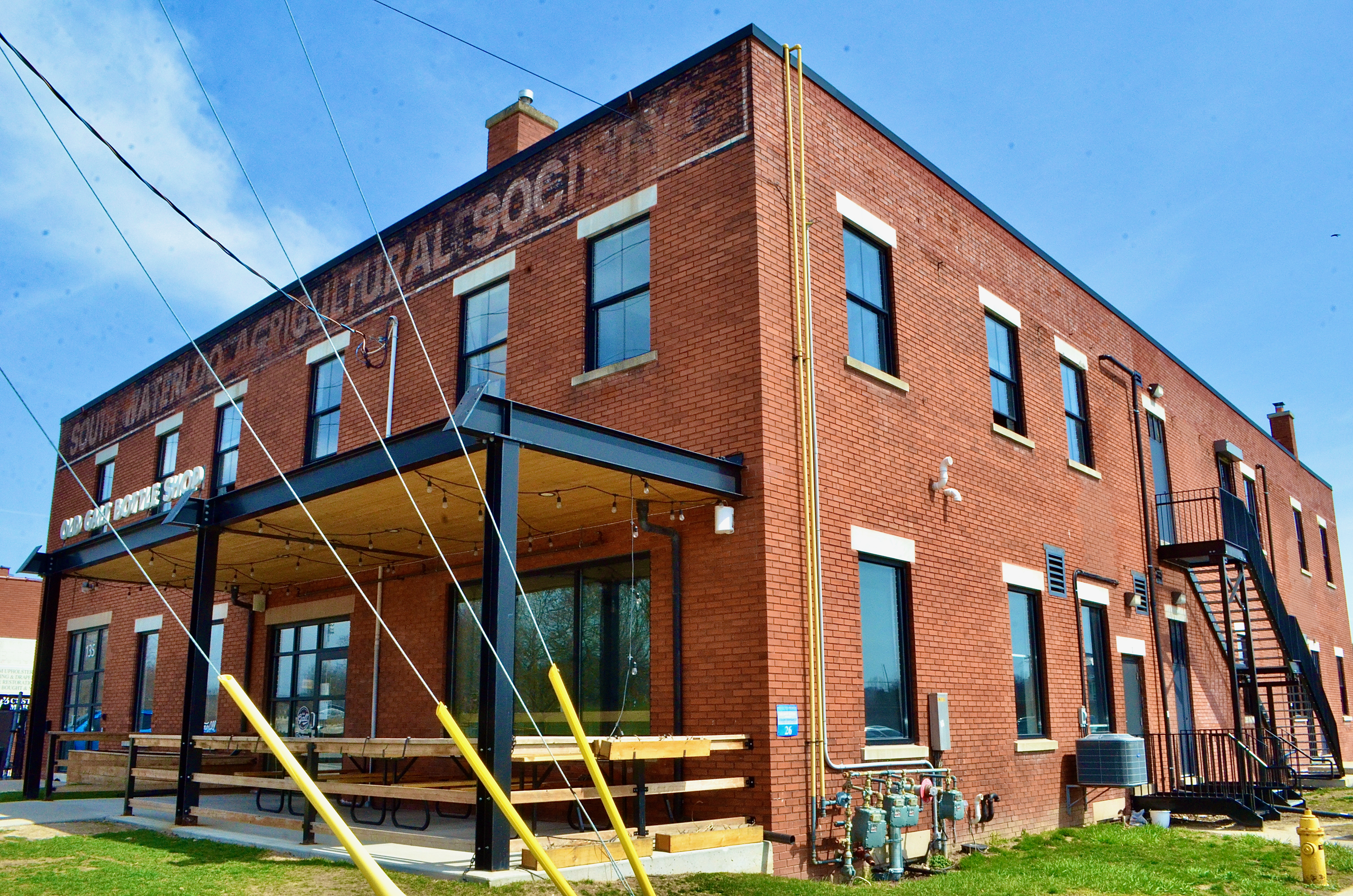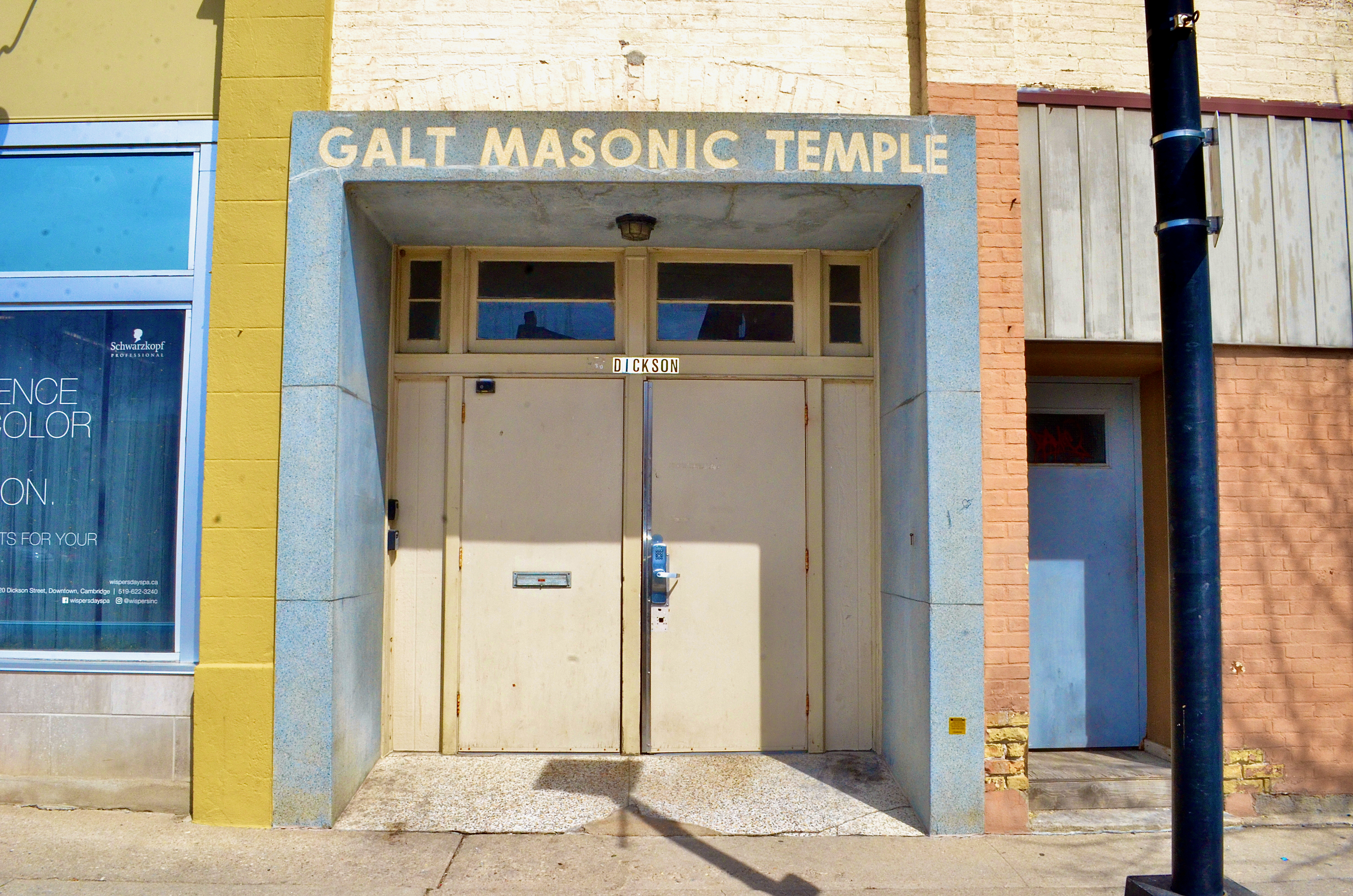Cambridge in the late 1970s might seem an unlikely bastion of lesbian empowerment, but for more than three decades starting in the late ‘70s it was, and filmmaker Chris Vautour is documenting the history of the Robin’s Nest, a clandestine sports and recreation club at the centre of it all.
“I would say in the 33 years it was there, literally, thousands and thousands of women went through their doors,” said Vautour. “It’s not unlikely that that place changed a lot of people’s lives and I’m talking about myself too.”
The concept for the documentary came to Vautour while she was doing research for an autobiographical film.
“I was writing a screenplay about my life, coming out as a teenager in this area and the Robin’s Nest was figuring prominently,” she said. “So, I went to Google the Robin’s Nest thinking there would be lots of information about it and there was only one little thing in the Grand River Rainbow Historical Project that said that it operated and that was it. I was like, 'wow, we need to do a documentary about the Robin’s Nest. The story needs to be told.'”
The story began a decade before 19-year-old Vautour joined the narrative in 1987, but her experiences are reflective of many who found their way there.
“My girlfriend at the time, we were in secret, and we broke up and then I had to figure out how I was going to meet any gay people,” she said. “As a gay person back then, you didn’t see anybody hugging and kissing each other. You didn’t have a chance to meet potential romantic partners in the outside world. So, I would say the clandestine vibe of the Robin’s Nest was due to the environment that operated at the time.”

Vautour didn’t know about the Robin’s Nest when she summoned the courage to answer an ad in the newspaper and was invited to a gay youth support group meeting. She attended the meeting only to find herself the lone female among a group of young gay men.
“They took me under their wing,” she said. “I was a teenager, and they were in their 30s.
They took me to The Half and Half, which was the bar at the time down a scary back alley at the back of King Street (in Kitchener) and there were no women there.”
The bartender told her about a place he heard about where she could meet gay women.
“I think there is a place down by the river in Cambridge,” he told her. “It’s called the Crow’s Nest or something like that.”
Vautour gathered what little information she could, and it led her, one Saturday night, to the parking lot outside the Baker’s Warehouse on Hobson Street next to the river in Galt.
“It literally was in the middle of nowhere,” she said. “This big old red brick building that had no signs, no identification of any sort then, eventually, I started seeing women come in.”
She watched them enter a side door while she overcame the fear to go in herself.
“You have to remember, even though I wanted to be with them, I was like, ‘What if they don’t accept me?’,” she recalled. “Maybe this isn’t what I think it is. Are they really lesbians?”
Vautour entered the building and eventually came to a locked door on the second floor.
“I had to knock,” she said. “They opened the door and looked at me and I was obviously this little baby dyke who had found her way into this club. I felt like the air just went out of the room. I was basically in a blackout. I couldn’t breathe because I felt everybody looking at me.”
It didn’t take long before her fear and awkwardness gave way to a sense of security and community.
“After that I became the blazer chick,” she said. “I always wore a blazer. I was there all the time.”
It operated in relative secrecy as a sports and recreation club for more than three decades.
“The Robin’s Nest agenda was built by Annie and Duffy, the founders, who were more interested in good community,” said Vautour. “Sure we danced and drank. People smoked and all that kind of stuff but the vibe there was very safe, which Annie went out of her way to do for us by keeping it somewhat secret, by not advertising it widely.”

The intergenerational nature of the club gave Vautour and other young gay women hope for the future.
“Young dykes saw all these older dykes in relationships,” she said. “I just interviewed someone yesterday and she said, ‘I knew I was going to be okay because I finally saw an example of what my life could be when I get older. That I could find love and be in a relationship.’ “
Vautour started a Facebook page, Robins Nest Doc, to help with her research and more than 450 people have joined to share their stories. She’s been told that, at its peak, Robin’s Nest was drawing more than 500 members every Saturday.
“There were chartered buses coming from Toronto,” she said. “Women from everywhere as far as London, St Catharine’s, Toronto, Guelph, everybody came from the whole Southern Ontario area.”
Founder Patricia “Duffy” Patriquin died April 22, 2010 at the age of 75 and the Robin’s Nest closed its doors officially that same year with an historic New Year’s Eve Party.
Vautour has been living in Victoria, BC since 1993.
“I sort of self-exiled myself from the area because my family was not happy with me being gay,” she said. “So, this project is bringing me back after all this time. I received a Canada Council grant to just do the research this year and I will be back for May and June to work on an intergenerational queer history event scheduled for June 24.”
Returning home and talking to other women with her shared experience has highlighted how important the Robin’s Nest was to her when she was young.
“That little bit of validation on a Saturday night went a long way in the rest of our week when we were in the closet, in hiding and couldn’t share our lives, couldn’t be our whole selves,” she said. “We could go there for a couple of hours to be who we are and also learn about others because the Robin’s Nest’s was a very intergenerational space. It was a place for everybody. That was a big part of its charm and safety.”